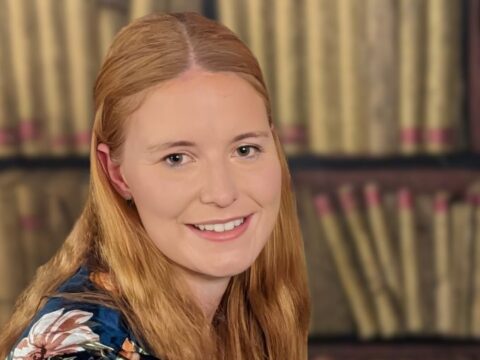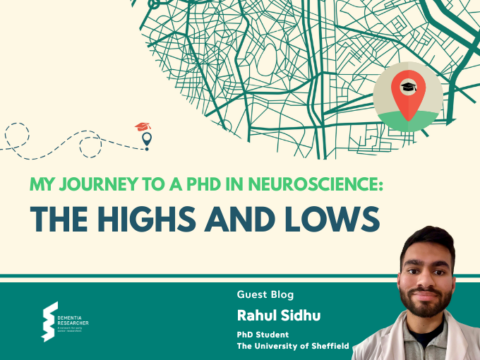If you’ve been following my PhD series for the past few months, you’ll know I’ve been writing all about demystifying the whole PhD process, from what one is, from where to find one and this month’s blog is all about how to make your application stand out. So, if you’re considering applying for PhD positions in the next few months, or just at some point in the future then this blog is for you!
I remember when I decided I wanted to start applying for phds, after the initial figuring out what one was, and then finding one that I thought would be a good fit, I realised I actually had no idea what an application would entail, and most importantly how I would make myself stand out. Disclaimer for this blog, I did my PhD in the UK, so most of the things that I’ll mention today are about the application process within the UK. However, lots of what I’ll mention can be applied to other PhD applications too. In the next few sections, the things I will mention will be relevant to the personal statement you’re likely to have to write and the academic cv that you’re also likely to have to submit.
Create a concise academic CV
One of the first things you’ll want to do is make an academic CV. The academic CV is usually much longer than a ‘normal’ CV and includes sections such as your research interests, education, research experience, conferences/talks/awards/publications, research skills, teaching experience, research and professional experience. If I’m honest, I found writing an academic CV for my PhD application quite difficult, as I felt that I hadn’t got that much to put on it. In the UK most people won’t have been to many research conferences prior to PhD level and very few people have published work (I had none of these before I started). So, a tip prior to applying for PhDs and before making your academic cv is to have something that’s specific to your PhD you want to apply for. For example, you could attend a free webinar about your potential PhD research topic (see next section). Anything that shows that you’re really interested in the PhD and you’ve thought about the PhD will definitely make you stand out. Your academic cv can include lots of the things that you think are relevant and then it’s up to your written personal statement/application where you can elaborate on the things that you think are most relevant to the specific PhD project you’re applying for! If you don’t know where to start with writing an academic CV then head to https://www.findaphd.com/ this website which goes through each section and gives good and bad examples!
Show that you’re interested in the PhD!
In order to make your application and CV stand out from the crowd you need to show that you’ve gone above and beyond. You need to give the potential supervisors a reason to think that you’d excel at the PhD and be interested in doing that specific PhD. This could be done in many ways but one way you could do this is in the personal statement you could write about relevant research modules that you’ve studied that are relevant to the PhD you’re applying for. Specifically, you could mention what you learned in those modules, the skills you gained and how you’d be able to apply them to this PhD. For example, in my personal statement I wrote about a module I did on my MSc course all about data analysis and visualisation using R. I wrote about what I’d learned (e.g. how to data wrangle and make graphs in R) and then I wrote about how I would apply this to the potential PhD project.
Another great way of showing your interest is talking about relevant recent research. There are many free webinars and societies that you can join as a student that can give you an insight about relevant research and what’s happening in the research field. If you’re interested in any form of dementia research (which I’m assuming you are if you’re reading this blog) then I’d definitely join ISTAART! ISTAART is the international society to advance Alzheimer’s disease research and treatment. It’s a professional society of researchers, clinicians and dementia professionals. Importantly, for students’ membership is free! Membership can give you access to many things including the professional interest areas (PIAs) there are many interest areas to choose from including vascular cognitive disorders, neuroimaging and partnering with research participants. Importantly, these groups often host webinars about the most recent research in the area – so attending these free webinars early on in your PhD application journey can be a really good way to set yourself apart from others and really show that you’re interested in the project you’re applying for. What’s more, the PIAs also have executive committees that decide on the goals for the PIA throughout the year and numerous other things and they even have a position for students and postdocs, so if you’re interested in seeing how a certain PIA works and interested in how ISTAART works as whole this is also a great opportunity to look into! And would definitely show your interest in the research area!
Tell them about your research experience
One of the best things you can do in a PhD application is tell them all about your research experience. This can feel like a hard thing to do, as you may feel that you don’t have that much research experience (I definitely felt this way). But, if you have completed a dissertation project in your undergraduate studies, and if you’ve done a MSc and completed one in that then you actually have lots of research experience! Make sure that in your application when you’re talking about your previous research projects that you’re relating it to the project you’re applying for. For example, if you’re applying to a lab-based PhD and you gained some lab experience in your previous projects tell them about this! Tell them what you learned from the specific techniques and how you’d be able to apply that experience to this new project.
Tell them why you want to work in their lab
One important thing to remember in your personal statement is to make sure that you also include why you want to do your PhD training in the specific lab/university you’re applying to. Is it because of a specific technique that the group is well known for? Is it that you’re really interested in the research leaders work? It’s really important to show that you’re interested in doing your training in that specific place. An example of showing how to do this may be talking about a specific technique that the lab does and talking about why you want to learn it from them. Or you could even talk about some of the recent research papers from the lab and tell them why it’s that that’s inspired you to want to work and train with them and their group for the next few years!

Beth Eyre
Author
Beth Eyre is a Postdoctoral Researcher (Dr pending minor corrections) at The University of Sheffield, researching Neurovascular and cognitive function in preclinical models of Alzheimer’s disease. Beth has a background in psychology, where she gained her degree from the University of Leeds. Inside and outside the lab, Beth loves sharing her science and we are delighted to have her contributing as a regular blogger with Dementia Researcher, sharing her work and discussing her career.

 Print This Post
Print This Post




